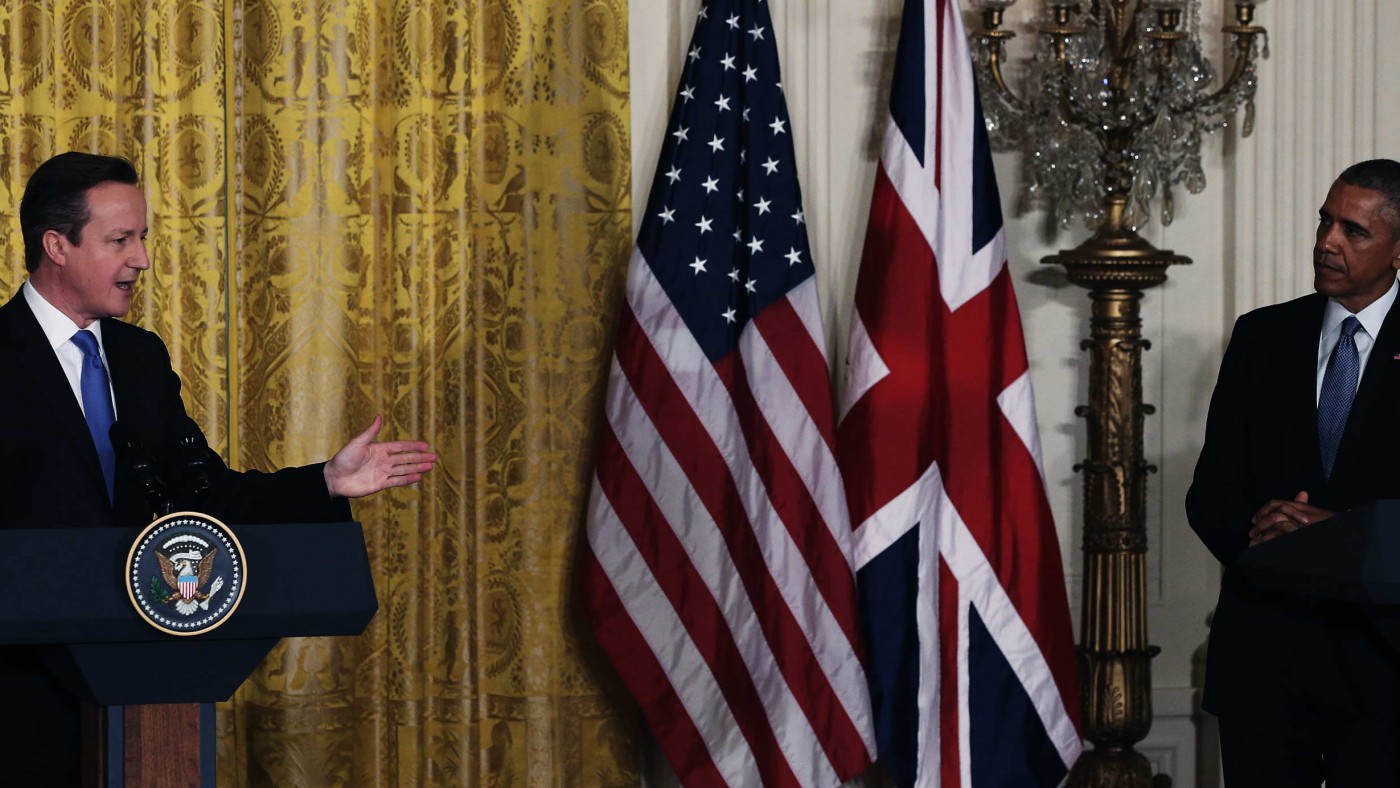At the UK Conservative Party Conference in Birmingham last October, the Prime Minister declared that he would be prepared to campaign for a British exit from the EU if it is “not in Britain’s interest to be in the European Union.” If Mr. Cameron is returned to Downing Street this May, and his efforts to reform the European Union and repatriate powers from Brussels are rebuffed in advance of the pledged 2017 referendum on EU membership, he would have to lead the charge for “Brexit.” What would Britain’s future outside the EU look like, and what would replace Britain’s current trading relationships, which are at present wholly negotiated by the European Commission?
In a recent paper published by the Heritage Foundation in Washington, DC, Ted Bromund and I argue that the British people would flourish outside of the EU straitjacket, free to shape their own destiny on the world stage. If Britain votes to leave the EU two years from now, the United Kingdom would regain the ability to negotiate its own trading relationships for the first time since 1973 when it joined the European Economic Community. This would be a hugely significant development for one of the world’s great trading nations, with global interests stretching from Hong Kong to southern Africa’s Cape of Good Hope.
At present, British trading interests are held hostage by the whims of other European capitals, whose attachment to the principles of economic freedom are not always as robust as London’s. It is simply astonishing that a great power such as Britain is not able to fashion its own trading relationships with the rest of the world.
The United States is in the process of negotiating a Transatlantic Trade and Investment Partnership (TTIP) with the European Union, but there are increasing doubts that such an agreement will be signed, and fears among policymakers in Congress that some of its provisions may actually increase government regulation rather than reduce it, while undercutting US sovereignty through the harmonisation of regulations.
TTIP has been aggressively promoted by both the Obama Presidency and by the European Commission, but neither side is genuinely in favour of pure free trade, shorn of protectionist caveats. Farm subsidies are strongly backed by President Obama’s own party, and across the Atlantic there is little sign that the vastly expensive Common Agricultural Policy will be dismantled. Unfortunately, genuine free traders are in short supply in the White House and the Berlaymont.
Whatever the fate of TTIP, soon after leaving the EU, Britain could expect to negotiate a flurry of free trade agreements (FTAs), both within Europe and across the world. The biggest of these agreements would be signed with the United States. A US-UK FTA would be a powerful expression of the Anglo-American Special Relationship, further bringing together two great nations with a shared history, culture and language, as well as a deep commitment to liberty. As we argue in the Heritage report, “a US-UK free trade area should serve as a symbol of and a real contribution toward a shared Anglo-American rejection of supranational control and the shared belief that government must be based on sovereignty and freedom.”
Both Britain and the United States stand to gain from such an agreement. They do a huge amount of mutual transatlantic trade and investment, and are home to the world’s two largest financial centers, in New York and London. As the Congressional Research Service (CRS) points out, “the US-UK bilateral investment relationship is the largest in the world.” CRS notes that roughly a quarter of total US corporate assets abroad are based in the UK – a staggering $5.1 trillion (based on 2012 figures, the most recent available.) British corporate assets in the United States amount to $2.2 trillion. US Foreign Direct Investment (FDI) into the UK amounted to just under $600 billion in 2012, with $487 billion flowing in to the United States from Britain. US firms operating in the UK employ 1.3 million Britons, with nearly a million American jobs provided by British companies based in the US.
In light of these figures, it is inconceivable that the United States Congress would delay pursuing a free trade agreement with Great Britain, the world’s fifth largest economy, and America’s closest friend and ally. The US already has free trade agreements in force with 20 countries, including the Anglosphere nations of Australia and Canada, as well as a range of countries in Latin America, the Middle East and Asia. It is ludicrous to suggest, as some European officials have done, that the United Kingdom would be isolated on the world stage if the British people decide to leave the EU in 2017.
One obstacle to a free trade agreement, however, is the stance of the current US Administration, which has expressed opposition to Britain leaving the EU, through a series of interventions by the White House and State Department. This is a continuation of a long-standing but outdated policy of US support for the process of European integration and ever-closer union. But by January 2017, the Obama administration will have left office. Its successor, either Democrat or Republican, may well face a new reality of Britain outside of the EU, necessitating a more pragmatic approach.
The White House should be willing to work together with Britain to advance a common free trade agenda that would advance prosperity on both sides of the Atlantic. There is simply too much at stake. And millions of Americans would undoubtedly sympathise with the desire of the British people to enjoy the fruits of sovereignty and self-determination. As Margaret Thatcher once wrote, the drive to create a European superstate is “perhaps the greatest folly of the modern era,” a sentiment that many on this side of the Atlantic heartily share in the wake of the Eurozone crisis, and the continuing decline of the EU.


